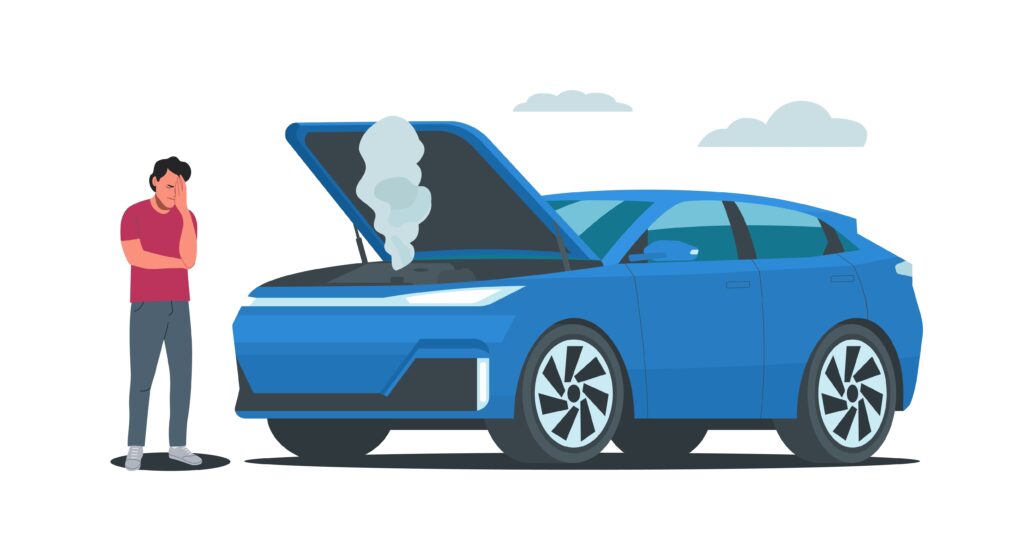When you buy a new vehicle, you expect it to be reliable, safe, and backed by a manufacturer’s warranty. But what happens when that vehicle starts having problems—and the dealership can’t or won’t fix them?
In California, consumers have strong protections under the Song-Beverly Consumer Warranty Act, also known as California’s Lemon Law. If your car has a serious defect that hasn’t been resolved after multiple repair attempts, you may be dealing with a warranty breach—and that’s where lemon law protection kicks in.
Unlike other states, California gives consumers the right to demand a refund, replacement, or cash settlement if their vehicle meets certain legal standards for unreliability or safety concerns. This isn’t just about inconvenience—it’s about protecting your time, money, and peace of mind.
You shouldn’t have to fight for basic functionality in a vehicle you paid good money for. Whether you’re dealing with engine trouble, transmission failures, electrical issues, or a dealership that’s dragging its feet, your situation may legally qualify as a lemon.
In this blog, we’ll explain what a warranty breach really means under California law, how to recognize one, and what legal options are available if your vehicle turns out to be a lemon.
Understanding your rights is the first step to holding manufacturers accountable and moving forward with confidence.
What Is the Lemon Law?
California’s Lemon Law, officially the Song-Beverly Consumer Warranty Act, is a state law that protects consumers who purchase or lease new or used vehicles that come with a manufacturer’s warranty. If the vehicle experiences repeated problems that impair its use, safety, or value—and the manufacturer fails to fix them within a reasonable number of attempts—you may be entitled to compensation.

The law applies to:
- New and used cars, trucks, and SUVs
- Certified pre-owned vehicles still under warranty
- Vehicles leased or purchased for personal, family, or household use
- Business vehicles under certain mileage and fleet thresholds
Remedies can include a buyback, a replacement vehicle, or a cash settlement. The Lemon Law also requires the manufacturer to pay your attorney’s fees if you win your case—so legal help is available at no upfront cost to you.
What Is a Warranty Breach?
A warranty breach happens when the vehicle does not perform as promised under the terms of the manufacturer’s warranty, and the company fails to fix the issue within a reasonable time frame.
Under California’s Lemon Law, a warranty breach may include:
- A defect that makes the vehicle unsafe to drive
- Repeated breakdowns or malfunctions that limit how you use your vehicle
- Failure to complete repairs within a reasonable number of attempts
- Extended repair delays or excessive time spent at the dealership
- Loss of resale value due to persistent, unresolved issues
The vehicle does not need to be completely unusable. If the defect significantly affects how you operate the car, how safe it feels, or what it’s worth, it may qualify as a breach.
Examples include:
- Transmission issues that cause the vehicle to jerk or stall
- Brake problems that affect stopping power
- Electrical failures that interfere with dashboard controls or safety sensors
- Recurring warning lights with no lasting fix after several visits
If the vehicle has been in the shop multiple times—or for more than 30 cumulative days—while under warranty, it’s time to take a closer look at your rights under the law.
Express vs. Implied Warranty Breaches
The Song-Beverly Act protects consumers under two types of warranties: express and implied.
Express Warranties
These are the written guarantees provided by the manufacturer, such as:
- Basic bumper-to-bumper coverage
- Powertrain warranties
- Certified pre-owned protection plans
When a manufacturer promises to repair defects during the warranty period, and fails to follow through, that’s a breach of an express warranty.
Implied Warranties

California law also assumes that any vehicle sold should be reasonably safe and functional—even if it’s not covered by a written warranty at the time of sale. This is called the implied warranty of merchantability.
For example, if a new vehicle begins stalling on the highway just weeks after purchase, that could violate the implied warranty—even if the defect isn’t specifically listed in the written warranty.
Both types of warranties are enforceable under the Lemon Law, which means even less obvious promises may be protected.
What Happens After a Warranty Breach?
If your vehicle qualifies under California’s Lemon Law due to a warranty breach, you have three main options:
1. Buyback
The manufacturer must refund your purchase price, registration fees, and loan payments—minus a small usage deduction for the miles driven before the first repair attempt.
2. Replacement Vehicle
The manufacturer may offer a comparable new vehicle of similar value and features. You can accept or decline based on your preferences.
3. Cash-and-Keep Settlement
In some cases, the manufacturer may offer cash compensation while allowing you to keep your car. This is common when you’d rather not deal with returning or replacing the vehicle but still want compensation for the ongoing problem.
Each remedy depends on the nature of your defect, how the vehicle was used, and how the repairs were handled. Before accepting any deal, speak with a lemon law attorney to ensure the offer truly reflects your legal rights.
What Is a “Reasonable Number of Repair Attempts”?
California law doesn’t provide a hard number—but it does give helpful guidelines.
You may be eligible for lemon law protection if:
- The defect creates a safety risk and has required 2 or more repair attempts
- The issue is non-safety-related, but has required 4 or more repair attempts
- The vehicle has been in the repair shop for 30+ total days (consecutive or not) during the warranty period
“Reasonable” means giving the dealership a fair opportunity to fix the issue—but it doesn’t mean unlimited attempts. If the problem persists after multiple visits, or if repairs take too long without resolution, the manufacturer may be in breach.
Do Minor Defects Count?
Not all defects qualify under the Lemon Law. Small annoyances—like a squeaky window or loose trim—typically don’t rise to the level of a warranty breach.
However, “minor” defects that affect safety, reliability, or usability can still count. For example:
- A flickering backup camera may pose a visibility hazard
- A recurring airbag warning may suggest a dangerous malfunction
- Frequent stalling could put you at risk while driving
If the issue makes it harder or riskier to drive the car—and it hasn’t been fixed despite multiple repair attempts—it’s worth exploring your legal options.
What to Do If You Suspect a Warranty Breach
If your vehicle still isn’t fixed after multiple trips to the shop, here’s how to protect yourself and build your case:
1. Save All Repair Records
Keep copies of service orders, diagnostic reports, and invoices from each visit. These documents show the timeline of your attempts and how the dealership handled the issue.
2. Track Communication
Write down any calls, emails, or texts with the dealer or manufacturer. Note the names of service managers and what they said about the repairs.
3. Log the Impact
Document how the defect affects your daily life—missed work, rideshare costs, safety concerns, or inability to use the vehicle as intended.
4. Consult a Lemon Law Attorney
Large manufacturers have legal teams working to minimize payouts. Having an experienced California lemon law attorney helps level the playing field—and most firms work on contingency, so you won’t pay unless your case is successful.
Frequently Asked Questions (FAQ)
Can I file a lemon law claim if my vehicle is used?
Yes, as long as it’s covered by the original manufacturer’s warranty or a certified pre-owned warranty. The law applies to both new and used vehicles sold with warranty coverage.
What if the dealership says they can’t replicate the issue?
You can still file a claim. Document when and how the issue occurs. Take photos, videos, or write detailed descriptions. Just because a problem is intermittent doesn’t mean it’s not real—or compensable.
Does the Lemon Law apply to leased vehicles?
Yes. Leased vehicles are covered as long as the lease includes a manufacturer’s warranty. The same rights and remedies apply.
Do I need a lawyer to file a lemon law claim?
Technically, no—but manufacturers often deny or delay claims filed without legal representation. A lawyer can increase your chances of success and maximize your compensation. Plus, under the law, the manufacturer pays your legal fees if you win.
How long do I have to file a lemon law claim in California?
You typically have four years from the date you first noticed the defect. However, the sooner you act, the better your chances of building a strong claim.
Final Thoughts: Don’t Settle for Less Than What You Paid For
You didn’t buy a defective car. You bought a vehicle backed by a promise—and if that promise has been broken, California’s Lemon Law gives you the power to take action.
Lemon law isn’t just for extreme cases. If your vehicle has spent too many days in the shop, undergone multiple repair attempts, or still has unresolved safety issues, you may be entitled to significant legal remedies. Time and again, consumers are told to “be patient” or “wait for the next fix,” when what they really need is resolution—not excuses.
At Win Lemon Law, we help drivers across Los Angeles stand up to manufacturers that fail to honor their warranties. Our goal is simple: get you the buyback, replacement, or settlement you deserve, with no upfront cost and no risk to you.
We’ve seen every excuse in the book from automakers trying to avoid responsibility. But with the right legal support, you don’t have to accept stalling tactics or lowball offers. You have rights—and we’re here to enforce them.
Don’t let a defective vehicle cost you time, money, or peace of mind. You paid for a working car—you deserve nothing less.

